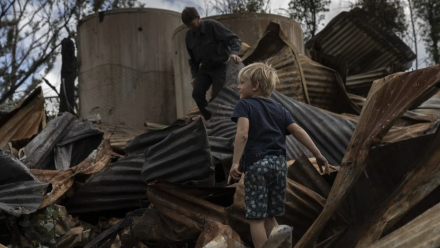Bushfire hearings spotlight climate change
It was February 18, and Scott Morrison was being pressed for government action in response to a growing emergency.
The prime minister justified his refusal to act with these words: “No one can tell me that going down that path won’t cost jobs.”
The emergency at hand was not the coronavirus; Australia was almost two weeks away from recording its first death from Covid-19.
The focus then was the summer of bushfires and the role climate change had played in the devastation. Morrison had been asked why his government, unlike many others around the world, and all Australian states and territories, had refused to commit to a target of net zero emissions of greenhouse gases by 2050.
His answer – that it would cost jobs and money – rang hollow in light of the lived, breathed experience of Australians during the summer. Climate change already was costing jobs, thousands of them. And vast sums of money. And lives.
But it looks even more hollow now, not least because his inertia in the face of that crisis so sharply contrasted with his urgency on the next.











